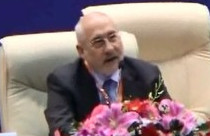Cultural sociology examined in theoretical, empirical perspectives
Author : Zhou Yi and Zhang Zhuojun Source : Chinese Social Sciences Today 2020-01-13
Since the Special Committee for Cultural Sociology at the Chinese Sociological Association was established in 2017, the discipline has been developing rapidly. This article briefly sorts through the theoretical and empirical research focuses of cultural sociology in China from 2017 to 2019.
In theory
Scholars of cultural sociology have a preference for theory. Through literature based search, we found that the discussion of the Western classical culture theory and the exploration of the Chinese “root” culture dominate theoretical studies in cultural sociology in China. The concept of “Chinese knowledge as the foundation; Western learning for use” and “combining theory with reality” have been embedded in various studies.
The re-interpretation of the Western classical theory mainly focuses on social morality and ethics at the macro level. Some scholars have taken the theory of Marx-Engels and taken the thought of Georg Simmel and compared each of them with the community and society theory brought forth by Ferdinand Tönnies. They concluded that the establishment of moral space depends on the social basis of political and economic equality. The core of social ethics is to construct this kind of political order and norm, which drives the individual’s own ethical responsibility.
Scholars who studied Suicide by French sociologist émile Durkheim believed that Durkheim regarded different types of suicide as the extreme symptoms of different morals, with the aim of discussing under what moral state people can achieve self-preservation, so as to rebuild the moral order of social integration.
In addition, Chinese scholars also touched on the theoretical analysis of the meaning of social life, including collective memory, emotional system, shame and self, neo-art sociology and aesthetic regression.
At the same time, there have also been many efforts to marry Western theories with Chinese discourse and reality. For example, by sorting out the characteristics and theoretical implications of narrative, Chinese scholars put forward two approaches, story and storytelling, and formed the prospect of “telling Chinese stories” in narrative sociology.
Again, through deviance studies, the three perspectives of technical problems, political process and cultural achievements were highlighted to guide the practice of targeted poverty alleviation in China. According to the theory of Developmental State, Chinese scholars concluded that the internal power of China’s rural revitalization existed in the cooperation between sociocultural subjectivity and national subjectivity.
The theoretical research on the Chinese “root” culture mostly centers on traditional Confucian culture and renowned Chinese anthropologist and sociologist Fei Xiaotong’s cultural thought. The study of traditional Confucian culture focuses on China’s unique guanxi system and its “family” culture. Guanxi, usually translated as “social connections” or “relationships,” has been deeply imbedded in Chinese culture for millennia.
For example, some scholars have argued that traditional Confucian ethics is an important cultural foundation for the intricate web of guanxi in China. Some studies have also discussed how Chinese traditional social structure supports the ethical principles of kinship (qinqin) and authority (zunzun)—two essential concepts in the everyday social life of ancient China—from the perspective of the evolution of the complicated mourning apparel system in traditional Chinese ceremonies.
The family culture of filial piety has always been a focal point of Chinese cultural research. Some studies have argued that the unequal parent-child relationship has played the role of social integration in forming family trees, social warmth, the guanxi system and the supremacy of authority. The social characteristic bred by the culture of filial piety is the most stable tradition in Chinese society.
The research on Fei Xiaotong’s academic legacy revolves around the theoretical concept of “cultural consciousness” and his view on rural construction. Though young Fei Xiaotong held a reserved attitude towards Liang Shuming’s idea of rural construction, in his later years, Fei was drawn closer to Liang’s thought and recognized its merits. His understanding of rural construction transformed from “finding your beauty” (Ge Mei Qi Mei) to “sharing the beauty and achieving unity” (Mei Mei Yu Gong).
Cultural consciousness theory enables researchers to switch between different cultural scenes, and it also marked the transition of Fei’s academic ideas in his old age. That said, Fei found that the development of rural industries and ethnic border areas is not just a problem of socioeconomic policies, nor is it just a problem of social structure; rather it is related to the aspect of Chinese culture that is known as “what is only to be sensed, not explained.”
Empirical findings
The empirical studies published from 2017 to 2019 are summarized based on two different orientations of cultural sociology: sociological explanation of cultural phenomena and cultural explanation of social structure phenomena.
The sociological interpretation of cultural phenomena extends to two kinds of cultural phenomena. In the narrow sense, cultural phenomena mainly refer to cultural products, such as artworks, films and dramas. Relevant studies mainly focus on the production and consumption of cultural products and explore the sociological logic behind them.
For example, some scholars explored the relationship between socioeconomic structure and art production by studying the rise and fall of a film studio, and they concluded that state control in the art market can promote the creation of art communities. The research on “migrant worker poetry,” “dagong shige” in Chinese, found that the creation of the underclass of domestic migrants who have flocked from the countryside to the cities since the 1980s has been beneficial for them to adapt to society and construct identity.
In addition, the research on the motives behind middle class families’ consumption of art and children’s art education found that it was the result of aesthetic regression. While the purpose of highlighting social status was diminishing, family investment in children’s education implied the status anxiety of middle-class parents.
In a broad sense, cultural phenomena encompass lifestyles and the causes of specific lifestyles and behaviors in the cultural dimension. In recent years, there have been a lot of studies on people’s lifestyles in public space. For example, through the study of public park dancing, it has been found that there is a collage and isomorphism of main cultural factors from different times that appear in this elderly subcultural group.
Some scholars have set their sights on teahouses and community cultural spaces that provide specific lifestyles. Different from the concept of political public space in the West, teahouses and communities in China are mainly for recreational purposes.
Not to mention, there have been many studies published in the past three years on the production and transmission of subjective cultural concepts such as political trust and religious belief, which are classic issues in cultural sociology.
There are also two types of studies on the cultural interpretation of social phenomena: One is to interpret social phenomena through the culture as the sum of thoughts and values in the social consensus. The other is to study social phenomena with the aid of conceptual tools, such as identity, cultural capital, narrative, discourse and symbol. The latter is increasingly popular because it better elaborates explanatory effects.
Many scholars tend to look for ways to explain the Chinese phenomenon with traditional Chinese ethics and culture, giving rise to explanations of the local social order from traditional ethical, moral and religious perspectives. Many of these studies affirm the role of temples in the reconstruction of moral life in rural areas, the reshaping of the Mahayana culture in mountainous areas, and the significance of familial and local ethics for China’s rural poverty reduction.
On the issue of parental support, some scholars have pointed out that the culture of filial piety appears in the modern family with the two emphases of authority and kinship and that it promotes children’s giving economic and emotional support to their parents.
Moreover, ritual, code, narrative and cultural capital are also widely applied concepts in cultural sociology studies. Rituals are often used to explain the emergence of social order. For example, studies have pointed out that traditional birth rituals were way of showing the acceptance of new people into the family and society. Codes are mostly related to the study of political movements. Some studies found that the government has successfully promoted agricultural technology among ethnic minorities by shifting the signification of killing pests away from the conception of killing living things and toward that of reducing manual labor.
The concept of narration arises more in historical analysis. Some scholars have believed that the difference in narration between the Han and Tibetan stories about the Wencheng Princess implies a challenge to the status of Han as the “model” of all ethnic groups in China.
Studies on the inequality caused by cultural capital have also been published repeatedly over the past three years, which indicates that cultural capital, including dialect ability, parenting style and education level, can affect people’s elite status acquisition through its unequal effects on migrants’ entrepreneurial behavior and access to education opportunities.
Going forward, more attention should be given to the latest cultural theories both at home and abroad. More attention should also be paid to empirical research that facilitates cultural concepts as tools to explain social structure and that facilitates the understanding of the culture through explicit objective behavior symbols rather than from the perspective of inner subjective ideology and value orientation. This could further promote the integration of qualitative and quantitative research in cultural sociology.
Zhou Yi and Zhang Zhuojun are from the School of Sociology at Fudan University.
Interview with Wang Gungwu on significance of studying overseas Chinese
Wang Gungwu is a distinguished Australian historian who studies overseas Chinese. He currently works at the Faculty o...
-
On the rat/mouse of the zodiac
2020-02-20
-
Regional development calls for Huaihe culture’s soft power
2020-01-10
-
Archaeological discoveries unveil Maritime Silk Road
2020-01-06
-
China’s industrial art printing
2019-12-10
-
Yue-Gan Ancient Road: A journey into Hakka history
2019-05-13
-
The Lantern Festival in Dream of the Red Chamber
2019-02-18














 2011-2013 by www.cssn.cn. All Rights Reserved
2011-2013 by www.cssn.cn. All Rights Reserved